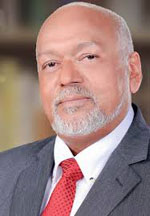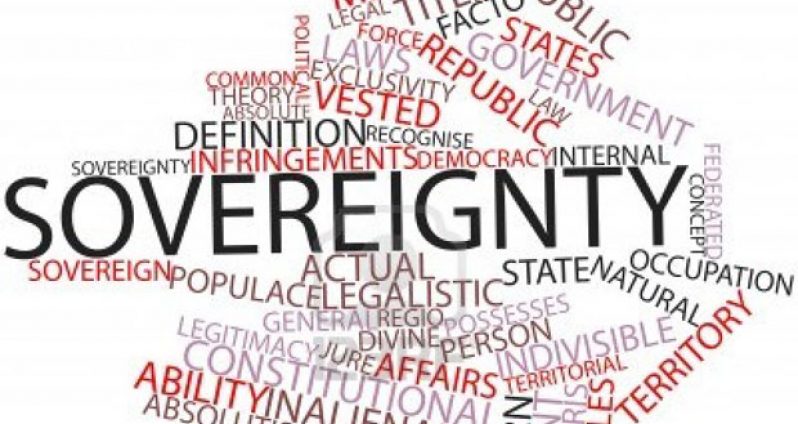THE Guyana Government last Wednesday disclosed its move to revoke the work permit, visa and the extension of stay of International Republican Institute (IRI) resident Country Director Glenn Bradbury, a local United States Embassy employee.

And leaders of the Opposition parties, A Partnership for National Unity’s (APNU) David Granger and the Alliance For Change’s (AFC) Khemraj Ramjattan, have since expressed concerns about a tit-for-tat scenario playing out with the United States.
Bradbury is responsible for the implementation of the controversial $300M United States Agency for International Development (USAID) funded Leadership and Democracy (LEAD) project, which has been rejected by the Government of Guyana.
However, President Donald Ramotar yesterday told the Guyana Chronicle that despite the hiccup that is the LEAD programme, Guyana and the United States continue to share strong relations.
He said: “We have excellent relations with the United States. We have good cooperation with the country in many areas of activity, such as in the security sector.
“We have no other issue with the United States, except on this issue (the LEAD project) where the Government has refused to accept the imposition of a project that we have not approved.
“…I hope the US will not take this kind of position (tit-for-tat). They ought to respect the sovereignty of our country.”
Mr. Ramotar surmised that the Opposition is seemingly willing to compromise on the nation’s sovereignty, as evidenced by their comments on the matter.
“This is a project that the Government never agreed to. We were not part of any forum that developed this programme and the bottom line is that we do not agree with the project in its totality,” the President said.

NO BREAKDOWN
Similar sentiments were expressed by Head of the Presidential Secretariat (HPS), Dr. Roger Luncheon.
He made it clear that bilateral relations between Guyana and the United States are not on the verge of a breakdown.
“The notion that there exists an issue between our governments that would allow us to contemplate a rupture in the relationship should not be entertained….once a sovereign state exercises its own sovereignty and own judgment about what is in its own national interests, it will generate unease, conflict, disappointment with other states and that is what diplomatic relations are all about,” Luncheon said, speaking at an April 16 post-Cabinet press briefing at Office of the President.
Dr. Luncheon stated also that Government finds provocative the implementation of activities with regards to LEAD project by the U.S. Embassy in Guyana, despite Government’s disapproval and concern with the impact this would have on the sound bi-lateral relationship that exists between Guyana and the U.S.
The first component of it seeks to encourage consensus-building in the National Assembly and facilitate more effective interaction between the Assembly and citizens. The second component aims to strengthen the effectiveness of the National Assembly and boost citizen engagement with Parliament. The third aspect of LEAD is to motivate and better equip Guyanese youths to constructively engage in political and civic processes, and the fourth involves civic and voter education relating to elections and local government reform.

The current administration is at present awaiting a “timely and official” word from the United States Ambassador to Guyana, Brent Hardt on Government’s reiteration of both its willingness to engage in talks over the project, as well as the condition that the implementation of the project be halted to facilitate talks.
FIRST IN TWO DECADES
In a prior interview, Presidential Adviser on Governance, Ms. Gail Teixeira, had said the current position of U.S. officials is a departure from the usual bilateral relations existing between the two countries.
She said: “The problem with the LEAD project is that it is a breach of the normal bilateral relations, as well as that the content has concerns for the Government – concerns which we expressed.
“This is the first time in 20 years that a project has not gone through that process. It has never happened between 1992 and 2012, and we are not agreeing to it because of the rejection of the Government’s participation.”
Teixeira questioned why the Government was not involved in the consultations on the project.
She stated that the Guyana Government and the American Administration have worked together over the last decades on US-funded projects.
“It has always been a collaborative effort, in which we have agreed on a design of a project and the implementation of that project,” she said.
Referring to examples of the unchallenged implementation of projects that addressed the issue of democracy, Teixeira said: “I was part of other projects that dealt with democracy: the Consolidation of Democracy project, which ran from 2004 to 2006; and the more recent one, from 2009 to 2012, which dealt with trafficking in persons and violence against women and such.
“In all of this, we sat with USAID and the U.S. Embassy to consult on the project over several days, some several weeks, and we came to agreement and the projects were signed off.”

She therefore maintained that the Government’s position has been made clear, and remains unchanged in relation to the LEAD project.
“Were the LEAD project to have gone through the protocol over the last 20 years, we probably would have come to an agreement and fine-tuned the number of concerns we had, which we have had with other projects with USAID,” Teixeira said.
She said what was provided to Government was a “done deal”, rejected by Government primarily on that basis.
“The main problem is the way in which the project is being implemented,” Teixeira reiterated.
The project was not approved by Cabinet, and this was formally indicated to the relevant authorities on October 26, 2013.
By Vanessa Narine



.jpg)








